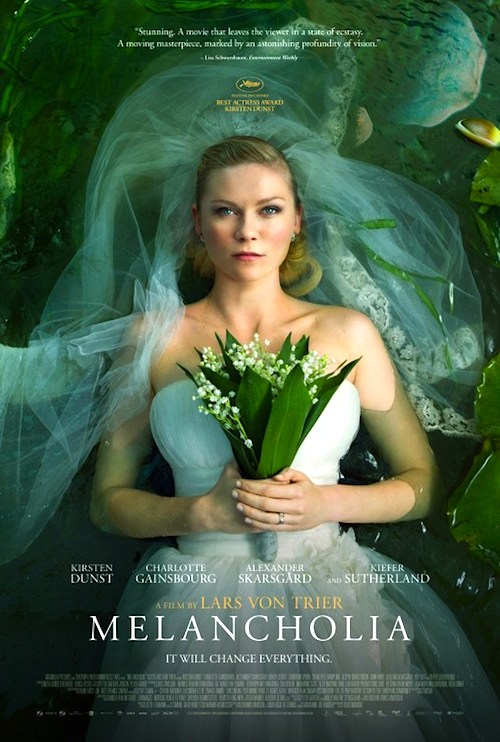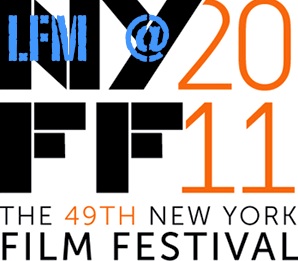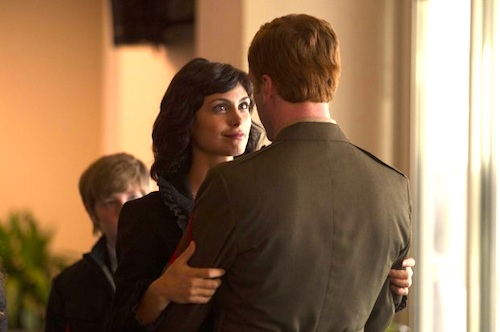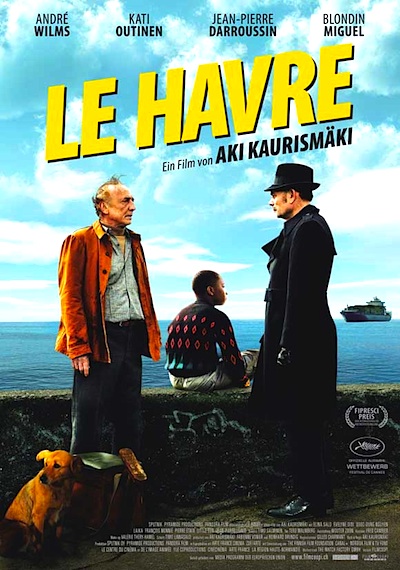 By Joe Bendel. It is the end of the world or the end of Lars von Trier’s career. Whichever it is, it will finish with a bang. After this year’s Cannes, Melancholia is probably carrying more baggage as well as more laurels than a porter in the Roman Senate. Yet, it is worth considering von Trier’s Melancholia (trailer here) separate and apart from extraneous controversies when it screens during the 49th New York Film Festival.
By Joe Bendel. It is the end of the world or the end of Lars von Trier’s career. Whichever it is, it will finish with a bang. After this year’s Cannes, Melancholia is probably carrying more baggage as well as more laurels than a porter in the Roman Senate. Yet, it is worth considering von Trier’s Melancholia (trailer here) separate and apart from extraneous controversies when it screens during the 49th New York Film Festival.
Frankly, Justine would probably welcome the apocalypse on her wedding day. Hours late to her own reception, family tensions are already boiling over. Her hotelier brother-in-law John resents footing the bill for the lavish shindig when she does not even appear to take it seriously. Her very divorced parents are eager to start clawing at each other again, while her crude boss chooses the ostensibly happy occasion to play a weird round of mind games with his newly promoted employee. Claire, her slightly less highly strung sister, tries to hold the night together, but chaos is inevitable.
As Melancholia’s second part opens, Justine is now a basket case, having driven her adoring new husband Michael away. Through Claire’s insistence, she is staying her sister’s family, acting weird and getting on John’s nerves. In addition to her family drama, Claire is increasingly anxious over doomsday scenarios regarding Melancholia, a hitherto unknown planet projected to cross quite close to the Earth. As an amateur astronomer, John assures her she should not pay attention to such media claptrap, but it is clear viewers should give her concerns credence.
Melancholia has been dubbed Another Earth’s evil doppelganger. To an extent, this is a valid analogy, particularly in the manner both films use science fiction concepts in what are otherwise very personal and intense human dramas. Yet, the comparatively free-wheeling first half of Melancholia feels more closely akin to fellow Dogma 95 filmmaker Thomas Vinterberg’s The Celebration. Indeed, it is a joy (though perhaps a slightly sadistic one) to watch Melancholia’s top shelf cast tear into each other.
 The Best Actress winner at Cannes, Kristin Dunst really is quite unsettling as Justine. The term ‘hot mess’ could have been coined with her in mind, yet she is never excessively showy in the role. Charlotte Gainsbourg and Kiefer Sutherland might sound like the most unlikely of couples, but they are quite convincing together as Claire and John (though at times we would not mind watching him open up a can of Jack Bauer on sundry family members). Not surprisingly, the old pros Charlotte Rampling and John Hurt nearly upstage everyone as the bickering exes, luxuriating in their tart sarcastic zingers. They also look perfectly cast as Gainsbourg’s parents (though maybe not so much for Dunst). Yet, the biggest laughs (and they are considerable) come from von Trier regular Udo Kier as the snippy wedding planner.
The Best Actress winner at Cannes, Kristin Dunst really is quite unsettling as Justine. The term ‘hot mess’ could have been coined with her in mind, yet she is never excessively showy in the role. Charlotte Gainsbourg and Kiefer Sutherland might sound like the most unlikely of couples, but they are quite convincing together as Claire and John (though at times we would not mind watching him open up a can of Jack Bauer on sundry family members). Not surprisingly, the old pros Charlotte Rampling and John Hurt nearly upstage everyone as the bickering exes, luxuriating in their tart sarcastic zingers. They also look perfectly cast as Gainsbourg’s parents (though maybe not so much for Dunst). Yet, the biggest laughs (and they are considerable) come from von Trier regular Udo Kier as the snippy wedding planner.
In the moodier, more impressionistic second part, Gainsbourg and Sutherland largely shoulder the dramatic burden, which they handle quite adroitly. In fact, Sutherland’s nuanced work might be the biggest surprise of the film. The notorious von Trier also stages the end of the world quite inventively, employing a simple but cinematic device to depict the rogue planet’s advancing approach.
Though accessible for general audiences, Melancholia is not the sort of film one can give a pat nutshell response to. Rather, it is the sort of film one studies and revisits over a period of years. A fascinating example of big picture movie-making on an intimate scale, Melancholia is the cineaste event-film of the year. Highly recommended, it screens this coming Monday (10/3) and Thursday (10/6) at Alice Tully Hall as a Main Slate selection of the 2011 New York Film Festival.
Posted on September 29th, 2011 at 1:14pm.

